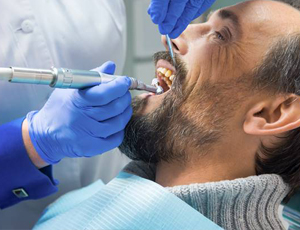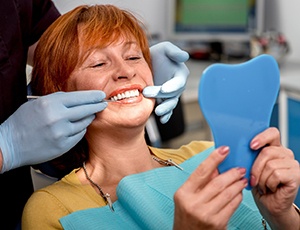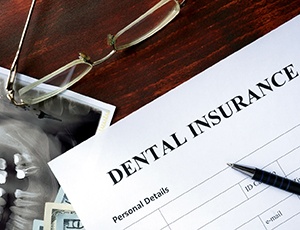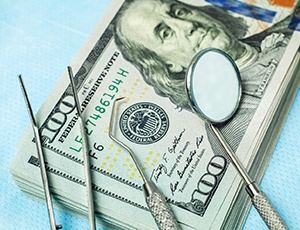Dental Crowns – Richardson, TX
Reliable Protection for Damaged Smiles
 At Canyon Creek Family Dentistry of Richardson, we partner with our Richardson dental patients to keep their smiles whole and healthy with regular dental checkups and teeth cleanings. Unfortunately, even the best preventive dental routine may not be enough to avoid every case of dental damage. When tooth decay or dental damage does occur, our team is here to help with high-quality dental crowns. They’ll fully repair your damaged smile while preserving the maximum amount of healthy tooth structure. If you’d like to find out whether or not you could benefit from this restorative service, continue reading or
make an appointment
with our friendly team today!
At Canyon Creek Family Dentistry of Richardson, we partner with our Richardson dental patients to keep their smiles whole and healthy with regular dental checkups and teeth cleanings. Unfortunately, even the best preventive dental routine may not be enough to avoid every case of dental damage. When tooth decay or dental damage does occur, our team is here to help with high-quality dental crowns. They’ll fully repair your damaged smile while preserving the maximum amount of healthy tooth structure. If you’d like to find out whether or not you could benefit from this restorative service, continue reading or
make an appointment
with our friendly team today!
What is a Dental Crown?
 Dental crowns are restorations that fit over the top of a damaged tooth. They’re used to repair severely damaged teeth to their full form and function while protecting the remaining healthy tooth structure from damage. These restorations can be crafted from a number of materials each with its own benefits and disadvantages.
Dental crowns are restorations that fit over the top of a damaged tooth. They’re used to repair severely damaged teeth to their full form and function while protecting the remaining healthy tooth structure from damage. These restorations can be crafted from a number of materials each with its own benefits and disadvantages.
Gold dental crowns offer superior durability, making them ideal for back teeth, but since they do not resemble natural tooth structure, they may not be a good option for front teeth. Porcelain fused with metal crowns look more natural and have the added strength of metal, but they will need to be replaced more often as the porcelain layer is worn down. All ceramic crowns retain a completely natural look throughout the lifetime of the restoration, and with superior materials and milling methods available today, they are a long-lasting solution that works well for many patients.
The Process of Getting a Dental Crown
 In many cases, dental crowns are placed over the course of two dental appointments. We begin by preparing the tooth or teeth in question. A thin layer of enamel is removed to ensure the restoration fits properly when placed. Then, impressions are captured and sent to a trusted dental laboratory. They’ll use them to handcraft your custom, high-quality dental crown. While your permanent restoration is made, your smile will be protected with a temporary one.
In many cases, dental crowns are placed over the course of two dental appointments. We begin by preparing the tooth or teeth in question. A thin layer of enamel is removed to ensure the restoration fits properly when placed. Then, impressions are captured and sent to a trusted dental laboratory. They’ll use them to handcraft your custom, high-quality dental crown. While your permanent restoration is made, your smile will be protected with a temporary one.
Once we receive the final crown from the lab, you’ll return to exchange your temporary restoration for the permanent one. It’ll fully restore the health and function of your smile, preventing additional oral health concerns, uneven dental wear, and strain on the jaw joints that can lead to TMJ dysfunction. Before you leave, we’ll show you how to properly care for your new smile so you can enjoy it for years to come!
The Benefits of Getting a Dental Crown
 By choosing to get a dental crown in Richardson, you can expect to enjoy the following incredible benefits:
By choosing to get a dental crown in Richardson, you can expect to enjoy the following incredible benefits:
- Improved comfort and regained chewing ability
- Lower risk of oral health problems down the line
- Protection for your natural teeth to make sure they don’t need to be extracted
- Ability to last over 15 years with proper care
- Natural-looking appearance
Understanding the Cost of Dental Crowns

If you're considering dental crowns, it's understandable that you'd want to know the cost upfront. After all, affordability is essential. However, the price of dental crowns can vary depending on individual factors. For an accurate estimate, it's best to consult with our team directly. We’re committed to providing budget-friendly care and will walk you through the financial aspects of crowns. During your consultation, we’ll discuss various payment options to ensure you receive the treatment you need without breaking the bank. Keep reading to learn more!
Factors that Affect the Cost of Dental Crowns

At your initial appointment, we’ll conduct an oral examination to evaluate factors influencing the price of your crown. These typically include:
- Severity of Damage – If your tooth has minimal damage, a simple crown may suffice. However, extensive damage may require additional preparation, impacting the treatment cost.
- Crown Material – While metal crowns are cost-effective, our office offers premium all-ceramic crowns at a higher price point.
- Crown Creation Process – Traditional crown fabrication methods are moderately priced, whereas same-day crowns produced with CEREC technology incur higher costs.
As we discuss these factors with you, it's important to note that opting for the cheapest crown may affect quality. Quality is crucial in oral care, and inexpensive options may not provide the desired longevity or aesthetic appeal. Therefore, it's recommended to choose a high-quality crown that not only looks and feels good but also ensures long-term durability.
Does Dental Insurance Cover Dental Crowns?

Most dental insurance plans cover the cost of dental crowns since crown placement is considered a significant dental procedure and often deemed medically necessary. As a result, most plans provide coverage for approximately 50% of the crown's cost.
However, there are exceptions to this rule. Your policy may not include coverage for dental crowns, or it may offer coverage with specific conditions or limitations. To ensure clarity regarding your coverage, it's best to verify your benefits before undergoing treatment. Our team is available to assist you with this process, providing guidance and clarification as needed.
Other Options for Making Dental Crowns Affordable

If you don’t have dental insurance, there are alternative methods to make dental crowns more affordable. We’re proud to offer alternative payment options such as flexible financing through CareCredit. This third-party financier will allow you to pay for dental crowns gradually through low-interest monthly installments.
At the end of the day, we’re dedicated to making crowns more budget-friendly for our patients. To learn more about our financing options, schedule a visit to our office today!
Dental Crown FAQs

Dental crowns in Richardson can be used for preventive, restorative, and cosmetic purposes because of their diversity and effectiveness. However, it's normal to have a few concerns before you're ready to commit to one. Dr. Azmoodeh will explain everything during your consultation to ease any apprehensions. In the meantime, here are the answers to the most frequently asked questions.
Are Dental Crowns Permanent?
A dental crown is designed to serve as a long-term solution, but it won't last forever. Eventually, your restoration will need to be replaced. The procedure isn't reversible because your tooth must be reshaped to allow the crown to fit over it. Therefore, your tooth will always need to be covered by a restoration.
How Long Do Dental Crowns Last?
The average lifespan of a crown is 10 years, but it's not unusual for a restoration to last for much longer. Many factors affect how long a crown will last, like the materials and location. Back teeth experience more wear and tear from chewing, so crowns on molars can have a slightly shorter life expectancy than those placed on the front teeth. A good oral hygiene routine will protect your investment. Besides brushing and flossing, visit your dentist every 6 months for a cleaning and checkup. Your dentist will also recommend limiting sugary, hard, and sticky foods. It's best to break any bad habits that can damage your restoration, like smoking, chewing on inedible objects, or using your teeth as tools. If you have a habit of grinding or clenching your teeth, ask your dentist for a nightguard.
Can Dental Crowns Get Cavities?
Crowns aren't vulnerable to decay, but the tooth underneath can still get cavities, which is why good oral hygiene is important. Pay close attention when cleaning where the crown meets the gum line to remove any plaque or food particles that harbor cavity-causing bacteria. Schedule a cleaning and checkup with your dentist in Richardson every 6 months to keep tooth decay at bay.
Does It Hurt to Get a Dental Crown?
Your dentist will use a local numbing agent to block any pain, so you won't feel anything while your tooth is being prepared. After your crown has been placed and the effects of any numbing agents dissipate, your tooth may be tender for a few days. You can manage it with an OTC pain reliever. Eat softer foods until any discomfort subsides.
Are Dental Crowns Covered by Dental Insurance?
Dental insurance may partially cover crowns needed for medical reasons. Your coverage can also include other aspects of your treatment plan, like any imaging or prep work. A member of our team will work on your behalf with your dental insurance to maximize any applicable benefits. We will explain how your coverage is being used and if there's any remaining balance. We'll also discuss your payment options for any out-of-pocket expenses, like CareCredit. You can pay for your crown using monthly installments with little or no interest in financing based on your credit approval.
